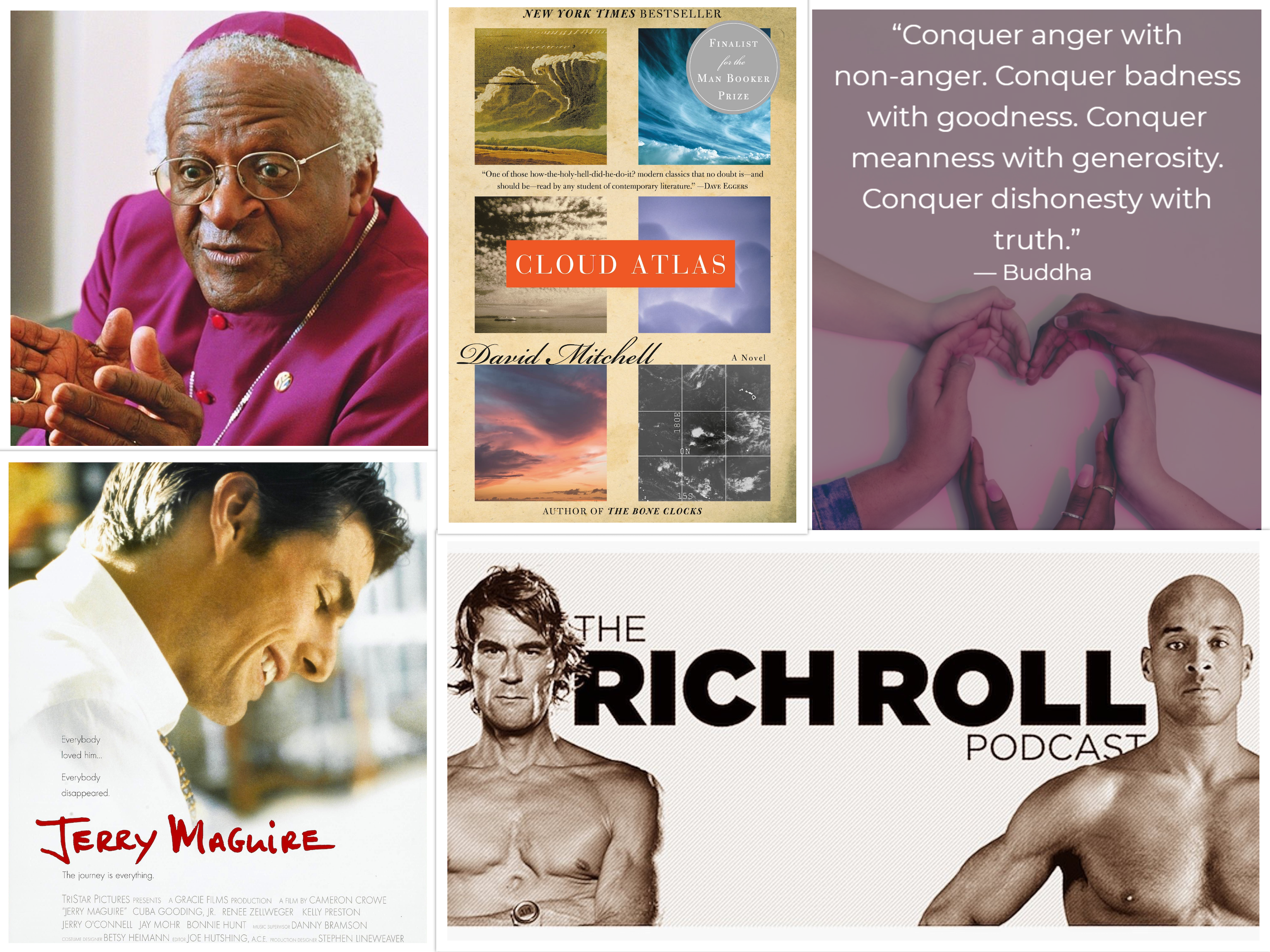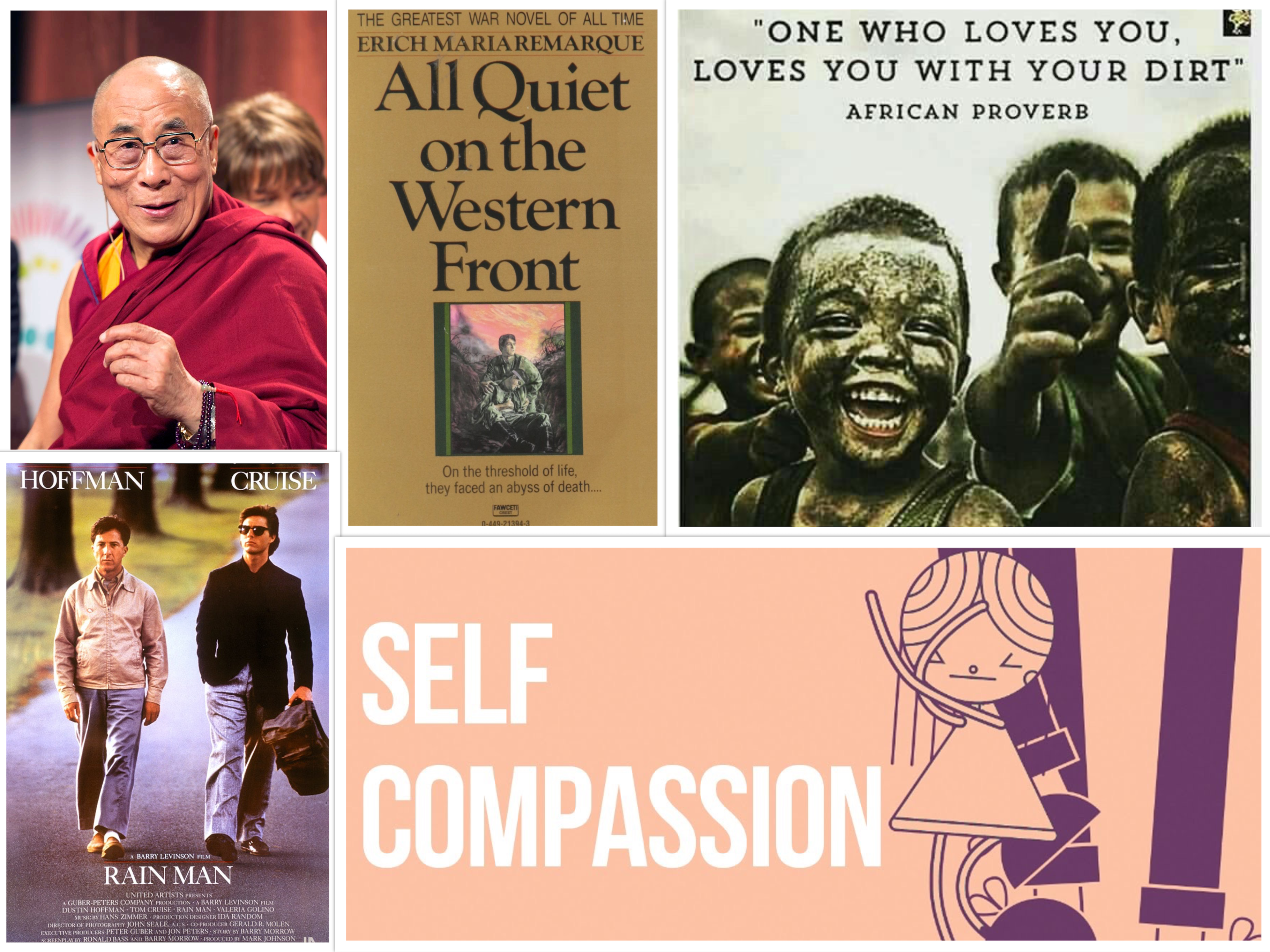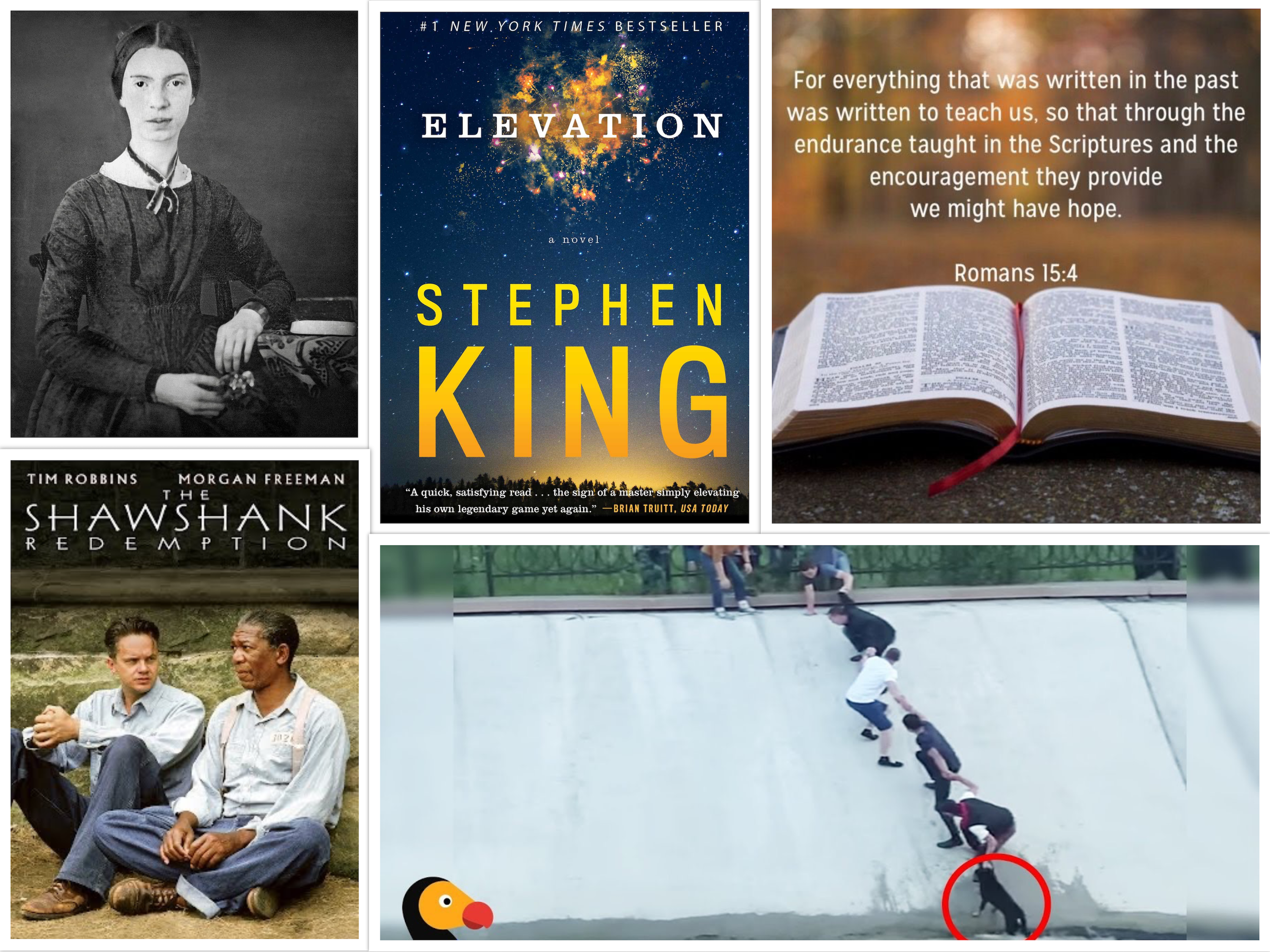Sunday Supplement #35 (January 9th, 2022)
Below is another Sunday Supplement with a quote worth sharing, a book worth reading, a movie worth watching, brainfood worth consuming, and a spiritual passage worth pondering.
I hope you take something away from these recommendations that enriches your week ahead!
Quote of the Week:
“Do your little bit of good where you are; it’s those little bits of good put together that overwhelm the world.”
– Desmond Tutu
Book of the Week:
Cloud Atlas – David Mitchell
David Mitchell is a multiple award-winning British author listed in Time magazine’s 100 Most Influential People in the World in 2007. His writings have been adapted into critically acclaimed films, and he has gone on to work on screenplays with the Wachowskis’. His novel, The Bone Clocks, was praised as one of the best novels of 2014 by Stephen King.
Cloud Atlas interlocks six different stories over six different time periods. The novel starts with an American notary traveling from the Chatham Isles to his home in California in the 1850s. The action moves over to Belgium in the 1930s and follows a disinherited composer who finds his way into an apprenticeship of an infirm maestro.
The novel then explores a troubled reporter in the 1970s who stumbles upon a story that threatens her life. In modern-day England, there is another narrative that follows a vanity press publisher hoodwinked by his brother. And the final two stories are set in a Korean superstate in the near future and a post-apocalyptic Iron Age set in Hawaii during the last days of history.
Cloud Atlas is a whopper of a novel, but it is one of the most brilliantly constructed narratives I’ve read. The book works its way through each story, setting up the characters and the drama, then works its way backward to conclude each narrative.
Mitchell’s novel was nominated for the Nebula Award of Best Novel, the Booker Prize, the Locus Award for Best SF Novel, and the Arthur C. Clarke Award. This book doesn’t always receive the highest praise, but it is worth checking out.
Movie of the Week:
Cameron Crowe’s Jerry Maguire won one Oscar and made over $270 million worldwide on a $50 million budget.
The film follows super sports agent Jerry Maguire, as he has a moral epiphany about his line of work and gets fired for expressing his feelings in a mission statement. Maguire then decides to put his new philosophy into practice by starting an independent agency with the only athlete who stays with him and a former colleague.
Cuba Gooding Jr. won the lone Oscar for the film in the category of Best Actor in a Supporting Role. His performance was brilliant but shouldn’t have been the only one recognized at the Oscars. Tom Cruise received a nomination for Best Actor in a Leading Role but didn’t win, and Renée Zellweger got snubbed entirely.
Jerry Maguire tells an entertaining story with great depth. The themes involved around redemption and love are expertly explored. The film also provides many laughs and a few tear-shedding moments. More likely than not, you’ve heard some of the famous lines from the movie quoted in your life, whether you’ve seen the film or not.
If you haven’t seen this movie yet, it’s worth adding to your list.
Brainfood of the Week:
David Goggins interview on the Rich Roll Podcast
Rich Roll’s podcast is a long-form interview with thought leaders, high performers, and positive change-makers all across the globe. The conversations are designed to help unlock and unleash our best, most authentic selves.
I featured a Jesse Itzler episode from the Rich Roll Podcast in Sunday Supplement #3. A cool connection between Itzler and David Goggins is that Itzler asked Goggins to live with him for a month to help him achieve new levels of mental and physical toughness.
Itzler’s book about the experience, Living with a SEAL, hit #1 on the New York Times and LA Times bestsellers lists.
David Goggins is the only member of the US Armed Forces to complete SEAL training, US Army Ranger School, and Air Force Tactical air controller training.
After several of his friends died in Afghanistan, Goggins set out to honor their memory by taking on the ten most difficult endurance challenges on the planet. He did this to raise funds and awareness for the Special Operations Warrior Foundation, which gives college scholarships and grants to the children of fallen special-ops soldiers.
In the interview with Rich Roll, Goggins talks about his experiences overcoming physical, academic, and emotional problems, his Navy SEAL background, and his endurance challenges.
The discussion between Goggins and Roll has many gems and is a perfect source of motivation and thought-provoking prompts. Check out David Goggins’ Can’t Hurt Me autobiography/self-help book if you like the interview.
Closing Spiritual Passage:
“Conquer anger with non-anger. Conquer badness with goodness. Conquer meanness with generosity. Conquer dishonesty with truth.”
– Buddhist Saying
In Sunday Supplement #13, I mentioned Teddy Roosevelt’s quote about doing what you can, with what you have, where you are. When I came across the Desmond Tutu quote, I remembered Teddy Roosevelt’s words and this Buddhist saying.
Tutu’s words build on Roosevelt’s advice in relation to how we can contribute to the good in the world. For me, the Buddhist quote is a how-to guide in following up on Tutu’s quote.
I don’t think it’s easy to always be at your best or in a good state, but I believe practicing the ability to control your actions is crucial to building a better way of life.
We can’t control what other people do, but we can control how we respond to different situations and others.
Take a breath in difficult times, choose how you want to respond, and have a blessed week ahead!
Comments closed



